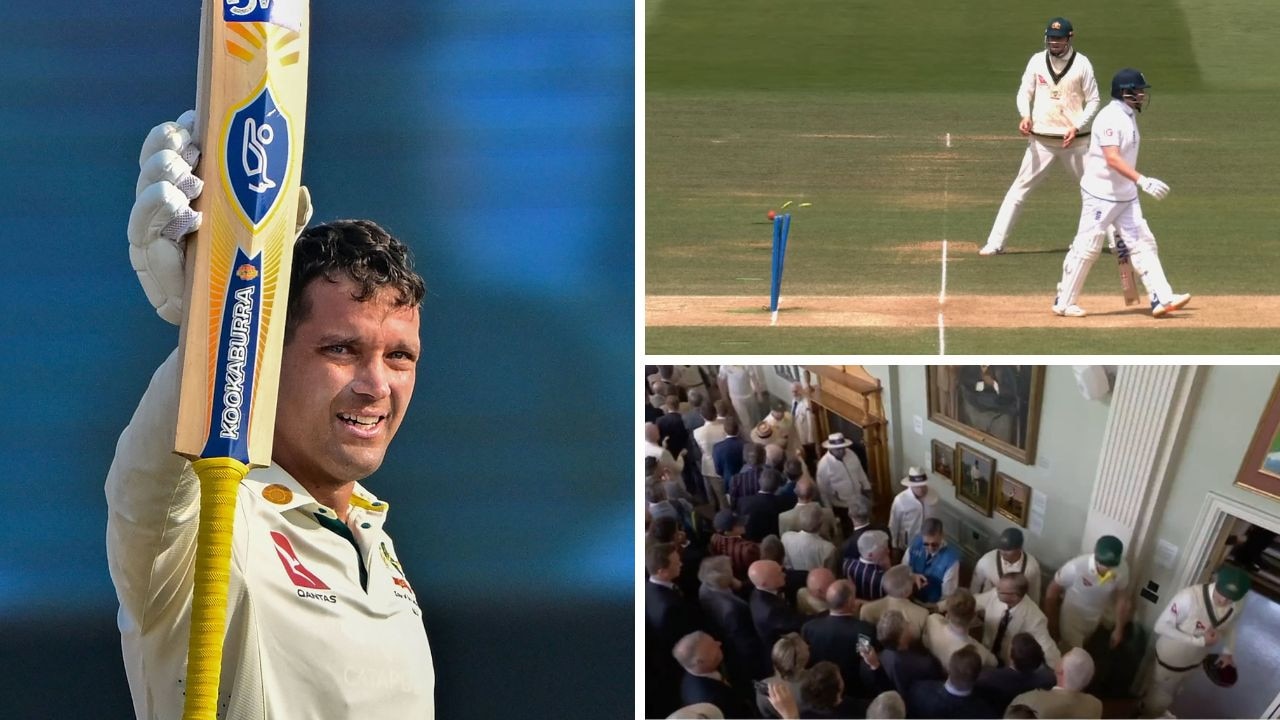Rabada appeal: Australian captain Steve Smith astonished he wasn’t asked for his side of story
ANY hope of frayed tensions being repaired ahead of the third Test in Cape Town appear shot, after Aussie skipper Steve Smith refused to sugar coat his disapproval of Kagiso Rabada’s animated send-off.

Cricket
Don't miss out on the headlines from Cricket. Followed categories will be added to My News.
STEVE Smith has explosively claimed that the Kagiso Rabada shoulder bump was harder than it looked and expressed bewilderment that the ICC didn’t bother seeking his side of the story to find out.
Any hope of frayed tensions being repaired ahead of Thursday night’s crunch third Test in Cape Town appear shot, after the Australian captain refused to sugar coat his disapproval of Rabada’s animated send-off, and the ICC’s toothless approach to implementing the rules of the game.
DEBATE: Will Rabada drama cause ICC rethink
GREEN LIGHT: Rabada cleared to play after appeal
BEN HORNE: Absurd decision a bad look for cricket
Smith is dumbfounded that the governing body would choose to give a green light to on-field physical contact and condemned the judicial appeal process for ripping apart Jeff Crowe’s original verdict on Rabada and essentially hanging the respected match referee out to dry.
Despite the dangerous precedent he believes has been set, Smith will still instruct his bowlers to allow opposition batsmen their personal space, but admits the floodgates have now been opened for teams to push those boundaries and also appeal anything and everything.
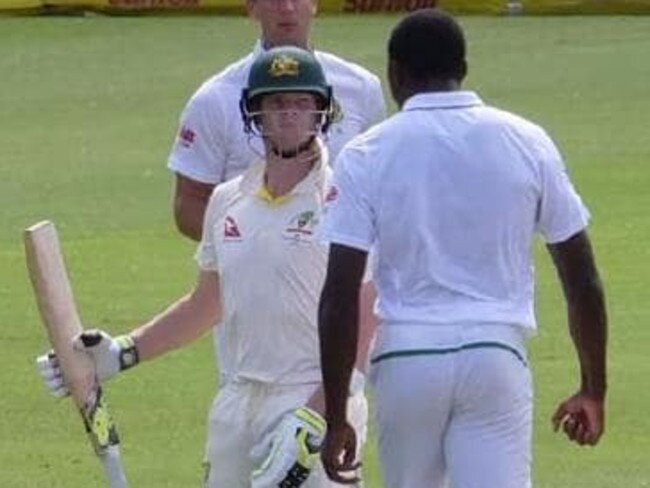
Smith never wanted to make a big deal of the Rabada bump, but for a case with such huge ramifications for the game, he can’t fathom how his version of events wasn’t sought by an independent commissioner, who was happy to hear South Africa’s argument for six hours.
“Interesting. I certainly think he bumped me a little bit harder than it actually looked on the footage,” said Smith.
“It didn’t bother me too much. (But) he’s won the battle. What’s the point of over-celebrating and getting in the face of a batter? You’ve already won the battle.
“But they’ve obviously decided what is deliberate contact and what is not, and apparently it wasn’t.
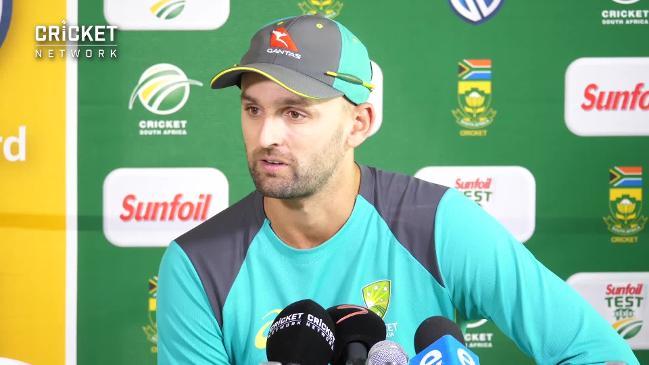
“No I didn’t (get approached to give evidence). It’s pretty interesting when you’re, I guess, looking for evidence and those kind of things.
“The (fact the) other person involved is not getting asked about it is pretty interesting I thought.
“… The ICC have set the standard, haven’t they? There was clearly contact out in the middle.
“I certainly won’t be telling my bowlers to go out there and after you take a wicket go and get in their space. I don’t think that is on and part of the game.
“But the standard has been set.”
Smith also had to cop having his integrity questioned on twitter by South African fast bowler Vernon Philander, or according to Philander, a mystery late-night hacker.
The account alleged that the Australian skipper had contributed to the bump and even faked the contact from Rabada, claims which Smith slammed as “garbage”.
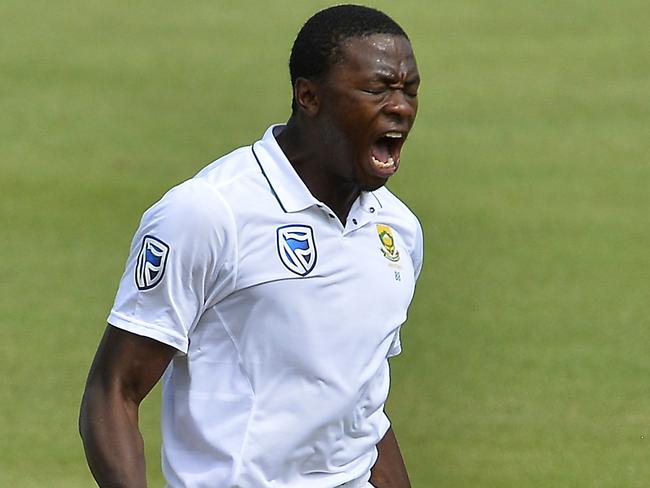
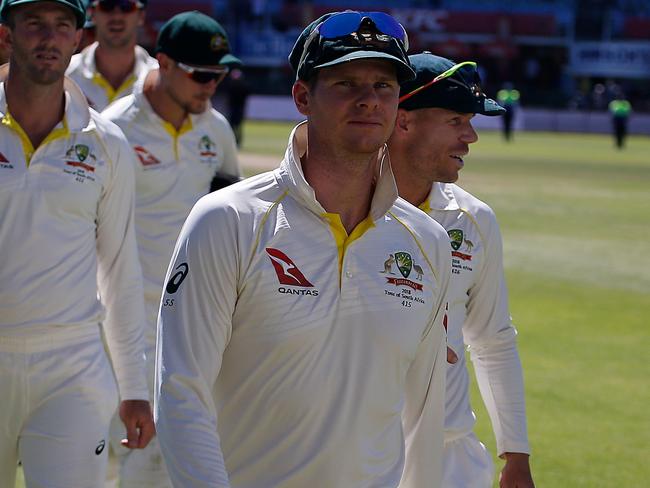
“I think that’s a bit over the top. I was just going down to chat to Shaun (Marsh). I had just been given out so I was trying to see whether I could find a way to still be out in the middle,” he said.
“I think that’s a load of garbage to be honest with you.”
New match referee Andy Pycroft — who was also in charge during the infamous mint gate saga involving South African skipper Faf du Plessis — has moved to sit down senior players from both sides in a bid to end the circus that has threatened to derail the series.
Pycroft met with Smith, David Warner and Nathan Lyon and was due to also lay down the law to South African brains trust du Plessis, AB de Villiers and Hashim Amla.
However, Smith’s thoughts are with the match referee that oversaw the first two Tests, New Zealander Jeff Crowe, who has had his reputation torpedoed by his bosses.
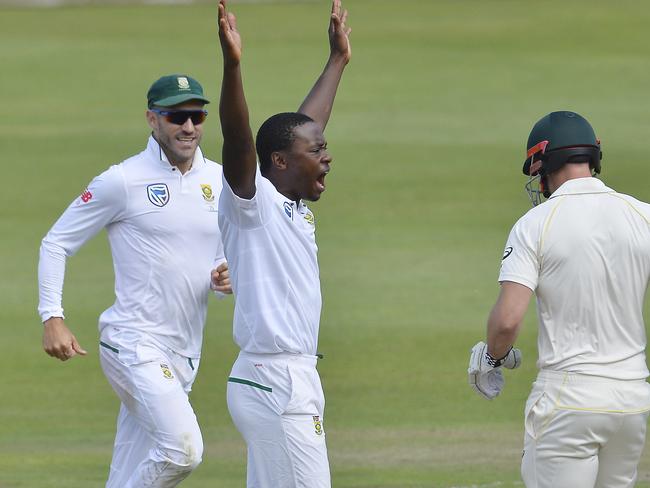
Crowe’s tough and considered attitude to physical contact on the field by a repeat offender was deemed wrong in the eyes of the ICC — leaving the authority of match referees vulnerable for a free-for-all on appeals.
“I do (feel for him). The way he handled both sides throughout the two Test matches, I thought he did a terrific job,” said Smith.
“I’d be feeling a bit annoyed if I was him to be perfectly honest.
“… If you see guys getting off then perhaps guys will appeal a bit more in the future to try and get off certain things. I guess it depends on the incidents.
“You always want your best players available to play so maybe, particularly now that we know people can get off, that’s for sure. That’s a possibility (Australia could lodge appeals) in the future.”
du Plessis was at the hearing and said it is a “fair process”.
“I think it’s really good for the game, I don’t see a problem where a neutral guy sits and makes a decision and listens to both parties, I was there and said to our people that even if we didn’t win the case I was very impressed with the judge and how he listened to both sides. He was very fair in the question he asked. I think the process is good. You should have a platform if you feel you haven’t done something wrong and have someone who sits in the middle and has a fair, objective point of view of listening to both sides and making a decision. “
The South African captain failed in an appeal against a ball tampering charge in Australia two summers ago and is carrying three demerit points as a result.
“I wish I had this judge with me in Australia _ I’d be sitting on one point as well,” he said with a smile.
Du Plessis said he didn’t think Smith needed to be in attendance.
“He wasn’t charged, if he was charged probably he would have been asked, KG was charged so he’s defending himself. The judge has to decide if he sees it as intentional. Nothing I was going to say was going to have any impact on that, I wasn’t even needed to talk. His pure decision was made on the deciding factor if it was on purpose or not.”


